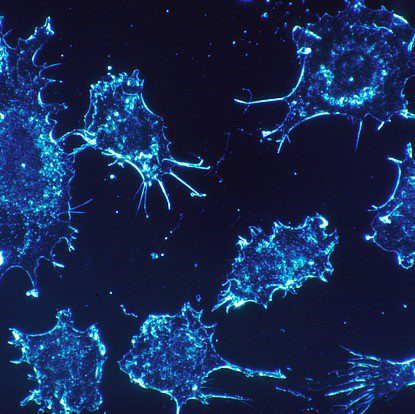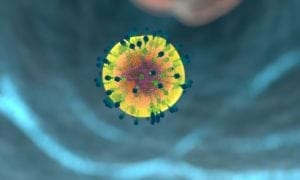According to a news release from immuno-oncology company IMV Inc., the first patient has been dosed in the Phase 2b VITALIZE clinical trial. During the trial, researchers are evaluating a combination treatment of Merck’s KEYTRUDA and IMV’s maveropepimut-S (MVP-S) for people with relapsed/refractory (R/R) diffuse large B-cell lymphoma (DLBCL). As prior studies have shown potential benefits of MVP-S, researchers are hopeful that this will build upon this understanding.
Maveropepimut-S (MVP-S)
To begin, let’s first take a look at what maveropepimut-S (MVP-S) is. According to IMV:
The protein survivin is found in more than 15 types of solid tumor and hematologic cancers [and] plays a critical role in tumor biology as it is associated with tumor cell differentiation, proliferation, invasion and metastasis. We believe [MVP-S can] deliver a sustained flow of T cells that target survivin.
In prior studies, such as the SPiReL clinical trial, MVP-S, in conjunction with KEYTRUDA, was found to be relatively safe and well-tolerated. Additionally, there was a high response rate; sustained benefits; and quality-of-life (QOL) improvements. To learn more about those study findings, take a look here.
Within the Phase 2b VITALIZE trial, researchers will evaluate MVP-S and KEYTRUDA. Some patients will also receive the immune modulator cyclophosphamide, given orally, although researchers will also evaluate efficacy without cyclophosphamide. An estimated 150 patients will enroll.
About Diffuse Large B-Cell Lymphoma (DLBCL)
Diffuse large B-cell lymphoma (DLBCL) exists under the larger umbrella of non-Hodgkin’s lymphoma (NHL). In fact, this highly malignant and aggressive cancer accounts for around 22% of NHL diagnoses. As the name suggests, DLBCL affects B-lymphocytes, a type of white blood cell. Risk factors of developing DLBCL include age (60+), having an autoimmune disease, a family history of DLBCL, or being immunocompromised. However, this cancer can affect people of any age. Symptoms associated with DLBCL include:
- Drenching night sweats
- Painless but swollen lymph nodes
- Fever
- Unintended weight loss
- Itching
- Abdominal pain (if cancer has spread to the abdomen)
- Diarrhea (if cancer has spread to the abdomen)






